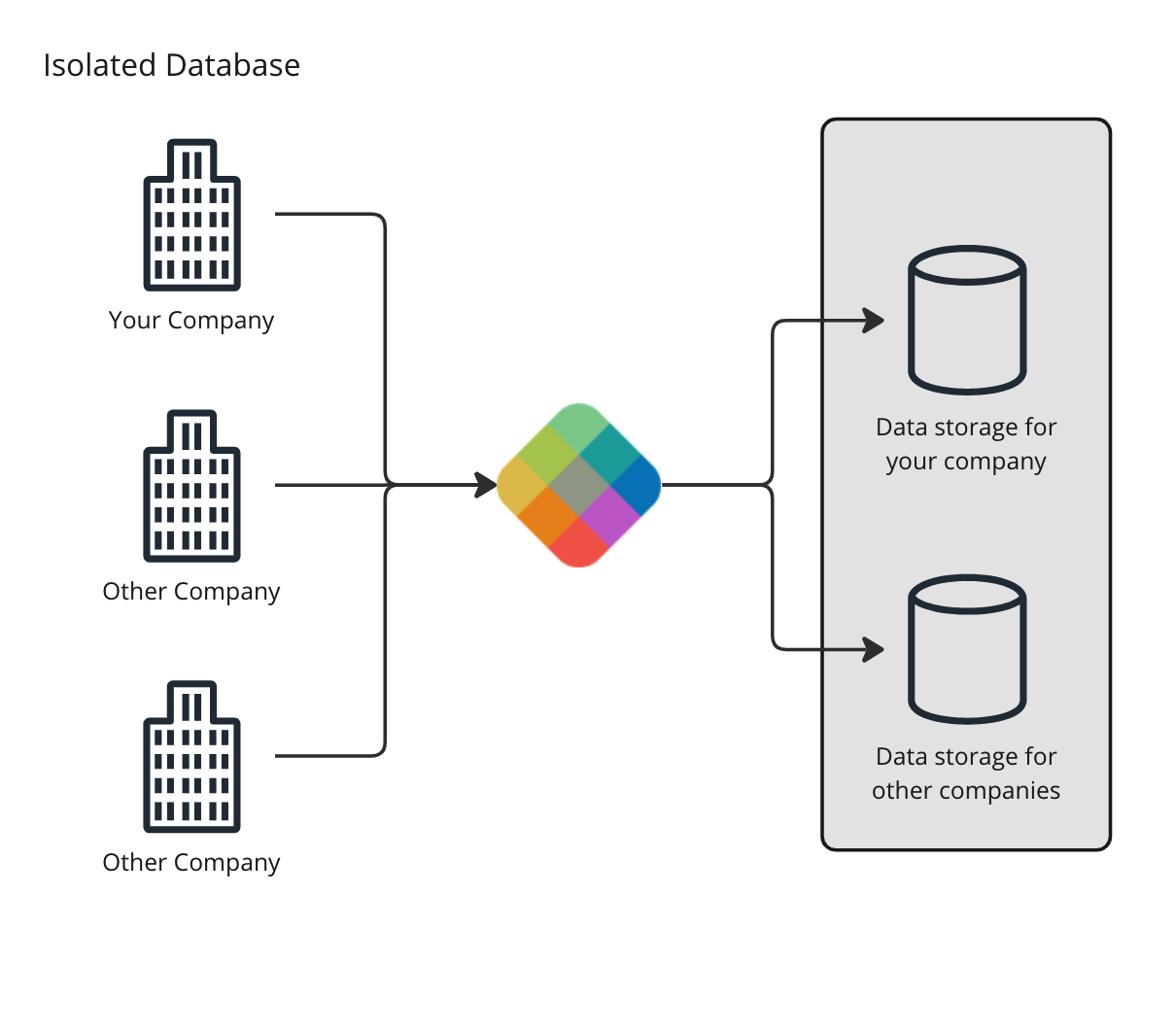Isolated Database
What is Isolated Database?
Isolated Database refers to a scenario where multiple customers share certain elements of a software's infrastructure, while others are separate. In Mosaic's Isolated Database offering, crucial components like the database are kept separate and dedicated for each customer.
The Isolated Database model is most commonly chosen by medium to large businesses, or businesses with strict requirements about security or data storage.

Isolated Database Analogy: The Condominium Complex
You can think of an Isolated Database as a condominium complex or "condo". Here, residents share common areas like lobbies, elevators, or gardens, each condo owner has their separate unit which they own exclusively. Most importantly, each owner has a dedicated storage unit or basement, separate from the others, to securely store their personal belongings. In the software world, this translates to sharing certain infrastructure components but having your own dedicated database – the 'storage' for your data.
Benefits of an Isolated Database Architecture:
- Personalized Database: Just like having a separate storage unit in a condo, a dedicated database means your data is stored separately, ensuring additional layers of security.
- Regional Data Storage: Having an isolated database allows you to store it in other regions or countries than Mosaic's Multi-Tenant offering.
- Shared Resources, Reduced Costs: Sharing some parts of the infrastructure means cost savings compared to fully dedicated setups.
- Flexibility with Control: While you share the main infrastructure, having your own database creates opportunity for customization.
- Isolation: A hiccup or issue in another customer's operations won't directly impact yours, just as an issue in one condo unit typically doesn’t impact the neighbouring units.
Is an Isolated Database Right for You?
Choosing an Isolated Database solution might depend on the following:
- Balanced Needs: If you’re looking for a mix of cost-efficiency and customization, using an Isolated Database strikes a balance.
- Data Protection: When you need a higher degree of data isolation than typical multi-tenant setups but don’t require an entirely separate infrastructure.
- Data Regionalization: When you have strict requirements about where your data can be stored.
- Scalability with Safety: An Isolated Database allows room to grow, while ensuring data is stored separately.
Updated 4 months ago
